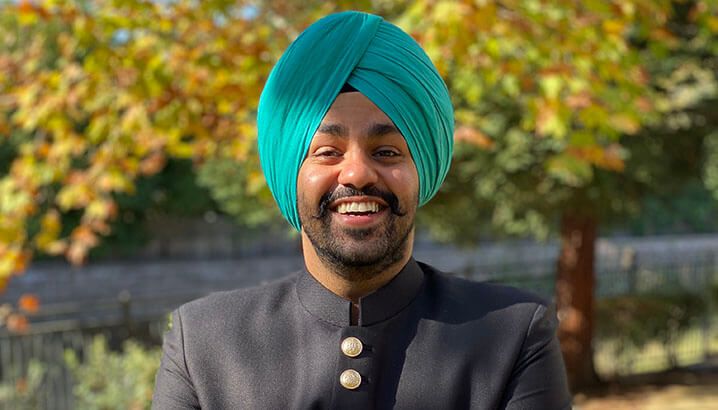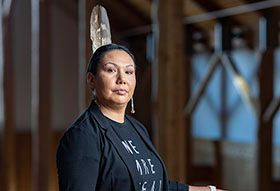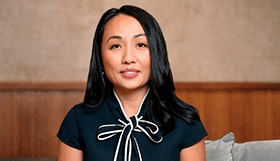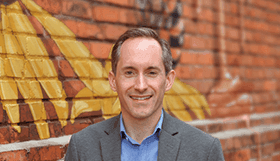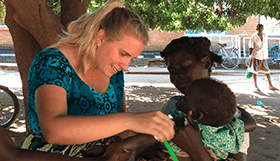UW Majors: Nuclear Engineering and Engineering Physics
Age: 31 | Palo Alto, California
Director of Engineering and New Product Development, Radium Incorporated
Most of us don’t wake up worrying about what it could mean to be exposed to nuclear radiation.
But when Jayeesh Bakshi rises at 5 a.m., he’s thinking about pediatric-cancer patients, hospital staff, and nuclear power-plant workers who risk bodily damage every day.
Bakshi is the primary inventor of a technology called ClearView Radiation Shielding. It protects people who perform critical tasks in high-radiation environments — think welding, maintenance, or refueling in nuclear reactors; medical imaging; or administering tumor-shrinking therapies.
Traditionally, lead-lined blankets or heavy-metal partitions are used as a barrier against contamination. But workers can’t see through lead. And, he says, it’s a pain to deal with.
“In very simple words, it’s toxic; it’s heavy,” Bakshi says. “And even when you don’t want to use it, you can’t just throw it away.”
After Bakshi joined Radium Incorporated, the company set out to create a radiation shield that would make work in the medical and nuclear industries easier, safer, and more efficient. The team turned to Bakshi, who studied chemical engineering at Thapar University in India. He set up a manufacturing-process flow, cooked up a mixture, and tested the substance in Madison at the UW’s Radiation Calibration Laboratory.
The end result: a lightweight, transparent liquid that blocks contaminating nuclear particles as well as lead does. The liquid works as a shield when it’s contained in plastic housings, which can be custom-made to fit any shape or form. And, the liquid is nontoxic, so it’s easier to manage waste.
Bakshi’s patented innovation is a welcome alternative for nuclear-industry workers, who today have the option to use ClearView to better see their tasks at hand. It can also mean a real weight off the shoulders of hospital nurses, who Bakshi says are often responsible for moving heavy, lead-based shields during medical procedures.
Hospitals are also using Bakshi’s creation to improve treatment for children affected by neuroblastoma, a rare cancer that most often strikes children under age 10. While being treated with targeted radiation therapies, these young patients often must be isolated for three to five days. Bakshi says patients and families can be apprehensive about the idea of being unable to see or touch during this time.
“There are kids who envision being inside a lead room; they just feel that they’re locked in a box,” Bakshi says. “Because of the basic anxiety of being there, either they themselves refuse therapy, or the lead physician refuses the therapy. It leads to kids dying.”
ClearView makes it possible for caregivers and families to see and communicate, while adequately protecting them from radiation. Bakshi recalls the powerful moment when he first saw a photo of a pediatric patient resting comfortably after treatment, playing video games in a ClearView-protected area: “That’s what gives you motivation and purpose.”
Bakshi says the company is focused on quality rather than quantity at this point, and that this emphasis on customer satisfaction has grown ClearView 150 percent each year since the inception of the radiation shield.
He especially enjoys on-site visits to power plants and hospitals, where he can personally connect with customers.
“I’m a turban-wearing Indian guy who is in the nuclear industry, which can be challenging,” he says. “Work culture, professional background, and exposure to diversity are very different in the nuclear power industry than they are in the medical field. The exposure I’m getting dealing with different people and learning how they think — it’s just amazing.”
Bakshi’s company is headquartered in Virginia; he’s based in Palo Alto, California. Doing business across time zones means long days at the office. But it also means the chance to meet fellow Badgers in the Bay Area.
“I have made three friends because I was wearing a Nitty Gritty shirt,” he says.
